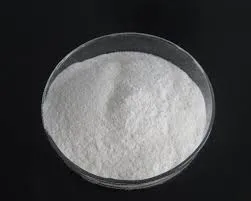
វិច្ឆិកា . 29, 2024 23:12 Back to list
HPMC Cold Water Solubility Characteristics and Implications for Formulation
Solubility of HPMC in Cold Water An Overview
Hydroxypropyl methylcellulose (HPMC) is a versatile cellulose ether that has gained prominence in various industrial applications due to its unique properties. One significant characteristic of HPMC is its solubility in cold water, which makes it an attractive choice in industries ranging from pharmaceuticals to food production. Understanding the solubility of HPMC is essential for formulators aiming to utilize its benefits effectively in their products.
What is HPMC?
HPMC is a modified form of cellulose, produced by the reaction of alkali cellulose with propylene oxide and methyl chloride. This modification imparts distinct properties such as improved film-forming capabilities, enhanced water retention, and a variety of viscosity characteristics. HPMC is widely used as a thickening agent, emulsifier, and stabilizer due to its hydrophilic nature, which allows it to dissolve in water.
Solubility Characteristics
One of the defining attributes of HPMC is its solubility in cold water. Unlike some other hydrocolloids that require heat to dissolve, HPMC can hydrate and form a viscous solution at room temperature. This property is particularly advantageous in applications where the heat could alter the stability or functionality of other components in the formulation.
The dissolution process of HPMC in cold water involves the swelling of the polymer chains, leading to increased viscosity as the concentration of HPMC increases. This process can be influenced by several factors, including the degree of substitution (DS) of the methyl and hydroxypropyl groups, molecular weight, and the presence of other additives or solutes.
Factors Influencing Solubility
1. Degree of Substitution The hydrophilic and hydrophobic balance in HPMC is affected profoundly by the DS. Higher substitution levels typically correlate with enhanced water solubility. As a result, HPMC grades with varying degrees of substitution can be selected based on the desired application.
2. Molecular Weight The molecular weight of HPMC also plays a crucial role in its solubility profile. Low molecular weight HPMC tends to dissolve more readily in cold water compared to high molecular weight variants, which may require prolonged stirring or higher concentrations to achieve complete dissolution.
hpmc solubility in cold water

3. Temperature and pH Although HPMC is designed to dissolve in cold water, temperature fluctuations can still affect the rate of solubility. Additionally, pH levels can alter the ionization of the polymer, impacting its interaction with water and other compounds.
4. Additives The presence of other ingredients, such as salts, sugars, or other polymers, can enhance or inhibit the solubility of HPMC. It's crucial for formulators to consider these interactions when developing products.
Applications in Industry
The ability of HPMC to dissolve in cold water opens up numerous applications across various industries
- Pharmaceuticals HPMC is frequently employed as a binder in tablets and as a film-forming agent in coatings due to its solubility at room temperature.
- Food Industry In food formulations, HPMC acts as a thickener, stabilizer, and emulsifier. It is particularly valuable in products like sauces, dressings, and bakery goods, where maintaining texture without heating is essential.
- Cosmetics and Personal Care For personal care products, HPMC serves as an ingredient in gels and creams, providing a smooth feel and stability to emulsions.
- Construction HPMC is also utilized in the construction industry as an additive in mortars and plasters to enhance the workability and adhesion properties of building materials.
Conclusion
The solubility of HPMC in cold water is a critical parameter for its effective application in a wide range of industries. By understanding the factors influencing its solubility and the implications for various formulations, manufacturers can harness the unique properties of HPMC to improve product performance. As the demand for versatile and effective additives continues to grow, HPMC's role in formulating innovative solutions in diverse fields is undeniable. With ongoing research and development, the potential for HPMC remains vast, paving the way for new applications that capitalize on its solubility and functional attributes in cold environments.
-
tile-bonding-additives-for-stronger-bonds
NewsAug.22,2025
-
construction-grade-rdp-for-wholesale-needs
NewsAug.22,2025
-
trusted-hec-supplier
NewsAug.22,2025
-
HEC Solutions for Industrial Excellence
NewsAug.22,2025
-
Construction Additives Need HPMC Essentials
NewsAug.22,2025
-
HPMC Versatile Cellulose Ether for Industries
NewsAug.22,2025







